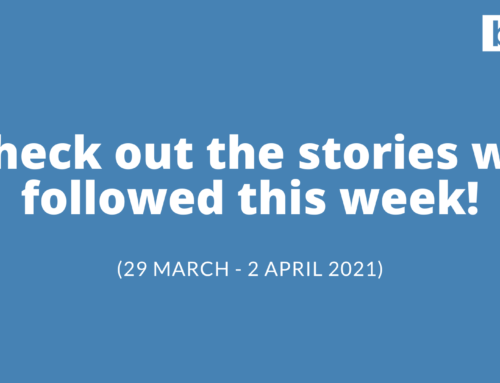It’s no surprise tech firms like Amazon, Google and Facebook are doing well during Covid.
Despite Facebook seeing significant declines in ad demand at a macro-level as companies reduce spending, as well as declines in the actual pricing of their ads:
- Facebook netted $17.74 billion in Q1 2020
- Resulting in 17% year-on-year growth for the quarter
Despite that, the company said it would take steps to rein in travel and marketing expenses, as well as slow hiring. All while Facebook’s stock price rose 10% after a surge in user numbers and higher-than-expected earnings even amidst the global downturn.
THE INTERNET’S GROWING FAANGS
Of course, none of this is happening in a vacuum. And it’s only set to increase, as already-dominant tech companies like Amazon, Facebook and Google are perfectly poised to thrive during the current situation. Reflecting the hugely symbiotic relationship between Big Tech and the overall economy, big tech has defied the downturn with FAANGS outperforming almost every other sector.
COVID’S CULLING THE COMPETITION
Firstly, smaller tech rivals had always struggled to compete for top talent, and have shed thousands of jobs during Covid. While specifically in the case of Amazon, Covid has also indirectly helped clear the road ahead, as many brick-and-mortar retailers may never reopen.
NO MONEY + NO MANPOWER
For most tech SMEs the problem isn’t purely a lack of money, or lack of manpower, but a double-whammy of both:
- Ad dollars were already down among other tech firms vs. Google and Facebook
- Maintaining skilled manpower was always a challenge pre-Covid – now it’s nearly impossible for tech SMEs
- US tech startups alone had already laid off 30,000+ staff by early March, while globally tech layoffs number in the millions which combined, erode tech SME’s position even further
NO ADS, NO PROBLEM FOR FACEBOOK
Conversely, while Facebook says ad revenue is likely to remain low as retail, hospitality, and others scale back spending, they have a secret weapon. Piles of cash. In fact, Facebook has over US$60 billion in the bank — while that pales in comparison to Apple for instance, it’s still more than the entire GDP of Costa Rica.
So what is Facebook doing with all that money? Firstly, while others are shedding manpower, they’re maintaining it. That money means Facebook staff won’t see the layoffs that sent unemployment soaring in other sectors, which is both good for morale, and business continuity in the current crisis economy.
Secondly, they’re investing. Like other Big Tech firms, Facebook will have a chance to do some serious shopping at greatly reduced prices, in terms of technology, and acquisitions – most recently including US search engine company, Giphy in mid-May.
BIG TECH FOR GOOD?
Prior to Covid, leading tech companies have spent years growing their hegemonies, assuring their dominance in several key respects:
TOO IMPORTANT TO IGNORE
Covid’s only reinforced that, as millions of people now buy essential supplies from Amazon, or use products from Facebook, Google, or Microsoft to communicate, study, or work.
TOO BIG TO FAIL OR TOO BIG TO CHALLENGE?
At this point, Facebook and Google have become an essential platform for advertisers, even their competitors, and are possibly the first purely digital (or arguably information-based) organisations which would now tick the boxes for a “too big to fail” check-list. They underpin global commerce. They have hundreds of millions of users. Their theoretical exit could create huge, unknown problems. In one sense it seems obvious, but in another, it’s a sea change. As a purely theoretical exercise, what would happen if we woke up tomorrow and Facebook ceased to work? It’s not a public utility. It’s not a bank. It’s not an essential service, but still, what would happen?
REALLY TOO BIG TO FAIL?
With ubiquitous ICT, location-linked apps, and AI- assisted tools, Big Tech is facing major public questions about their handling of data and privacy:
- USER PRIVACY
Facebook is facing a $35 billion class action suit for misusing facial recognition data of 7 million people in Illinois, USA
- UNFAIR COMPETITION
Google’s facing a huge anti-trust investigation in all 50 US states, encompassing its Android, advertising, and search businesses
- EVEN AMONG THEMSELVES
Amazon sued the Pentagon last November for awarding Microsoft, not Amazon a lucrative $10 billion cloud computing contract
BIG TECH AS A FORCE FOR GOOD?
Taking all that into account, Covid’s also given Big Tech firms like Facebook an unprecedented opportunity to amass goodwill:
- Polls suggest that Big Tech firms’ reputations are improving during Covid
- Tech giants are also helping track Covid cases and helping to collect data
- All while facilitating society’s growing need of buying essential supplies from Amazon, or using Facebook, Google and Microsoft to communicate, attend school and conduct business









